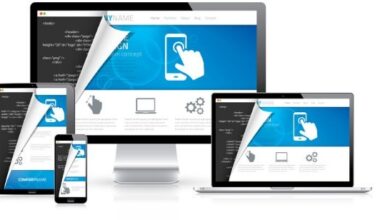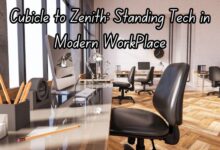5 Essential Features That Make a Great Commercial Real Estate Management App
Unlocking Success: The Key Components of an Outstanding Commercial Real Estate Management App

The 5 Essential Features That Make a Great Commercial Real Estate Management App include robust financial tracking, seamless property maintenance scheduling, comprehensive tenant management tools, intuitive lease management capabilities, and powerful reporting options. Today, the commercial real estate market is booming in the US, with projections claiming it will reach $24.67 trillion in 2023. Previously, the commercial real estate industry struggled with various challenges that lowered demand and increased operational and financing costs. These challenges mostly revolved around a tight labor market, rising interest rates, and economic downturns.
On top of this, managing commercial properties can get taxing with having to deal with maintenance and repairs, changing demographics, market shifts, and whatnot. However, what if you could manage everything from one software?
There’s a software application for almost anything, including the various aspects of commercial real estate management. efficient and effective software that helps you save time and money. By picking the best software, you can streamline the management process of your commercial properties and improve coordination with your clients.
Look for these features when picking commercial real estate management software:
Lease Administration
Lease management refers to ensuring your clients comply with the agreements in your lease. It includes tracking payments by collecting dues, addressing disputes, and processing lease renewals or terminations. This system oversees every aspect of the lease agreement process, ensuring prompt and timely transactions between all concerned parties.
Previously, lease managers would keep track of this data by using spreadsheets. Nowadays, advanced technology enables them to automate and streamline this process by leveraging lease administration software.
By utilizing this software, lease managers may lower costs by improving leased real estate data tracking. The software also improves communication between owners and clients and serves as a central database for all lease-related documents and contracts. Likewise, it reduces manual and repetitive tasks by automating workflow, manages rent payments, and ensures adherence to lease compliance.
Besides, manual management requires extensive time and effort, especially when dealing with commercial real estate. Nonetheless, using advanced software with administrative tools can automate the real estate lease management process and streamline routine tasks. Alongside saving time and effort, it organizes all your data into one place, so you can effectively manage owned and leased real estate properties.
User-Friendly Interface
Management software should be easy to use, with straightforward menus and well-placed buttons that can help you quickly complete the functions you were looking for. For example, the menu bar should be in clear view and have a search option to promptly look for information. It should also have responsive UX and be accessible on different screen sizes, like a mobile, tablet, or laptop.
These intuitive designs mark the difference between an excellent user experience and a lackluster one. If you spend too long learning how to use complicated and confusing real estate management software, how will you find the time to manage your commercial properties? There’s a lot on your plate, so why waste resources on a time-consuming platform?
Simplicity is essential, and the ideal platform should be easy to navigate even if you’re not tech-savvy. The UI should be easy to navigate, as a cluttered interface can cause stress. You are likelier to finish all your commercial property management tasks through a platform with features you understand entirely rather than software you’re still struggling to use. A user-friendly interface has a significantly positive impact on your tasks by improving productivity. It makes you five times likelier to complete your jobs and accelerates your management process.
Reporting and Analytics
Software that provides reporting and analytics helps you know where you stand in the market. This feature is essential for evaluating metrics like turnover rates and how to reduce costs. It also includes progress reports that help you measure your performance according to your goals. It enables you to see how your property is doing and lets you manage risks by fixing whatever needs maintenance. A real estate CRM system with these capabilities ensures you stay ahead in the competitive market by optimizing your property management strategies and customer relationships.
However, the more properties you own, the more information you’ll need to access. This overload of data can be overwhelming if your platform dashboard is cluttered. Instead of making you click through each property individually, good property management software should offer you a bird’s-eye view of all your commercial properties. Luckily, you can consider advanced management platforms, which provide a customizable dashboard to rearrange and stay on top of complex leases and continuous changes.
Tenant Screening
Although tenant screening is one of the most vital aspects of your lease signing process, many commercial property owners often overlook this step. Without following the proper procedure, you risk leasing your property to irresponsible tenants who will be a nightmare to deal with. Fortunately, a commercial tenant application form can prove valuable in this regard, seeking information about their business and analyzing their credit history.
- The Value of Design Thinking In Business
How To Open A Profitable Business In The Metaverse Era
- What are the best ways to grow a web design business?
A good-quality real estate management software can eliminate the hassle of doing a background check by automating the process. So, choose software that has access to business databases and credit bureaus. It can check whether or not your potential commercial tenants have a reliable credit history or poor financial reliability. This automation ensures this process happens instantaneously, which helps you save time and money by finding the right tenant as soon as possible.
Communication Tools
Choosing commercial property management software with robust communication features would be best. It allows you to remain in sync with tenants and keep all necessary records in one centralized place. Whether you need to collect rent or address a maintenance request, software with effective communication tools helps you conveniently communicate with your commercial tenants.
The best part is that you won’t have to deal with repetitive requests for maintenance or repairs. Choosing property management software that automates emails and text notifications lets you stay updated about your tenants without the inconvenience of traditional communication methods. This effective communication can keep you and your tenant happy by enabling timely rent collection and maintenance.
Conclusion
Now that you know what features to look for in quality commercial real estate management software, you can do trial runs of one or two to find your best match. You should select the platforms that best match your needs and create a checklist of their services, then choose the company that provides the best price. However, instead of focusing on software with plenty of modules, choose a platform that you are comfortable using.
Frequently Asked Questions (FAQs)
Q: What is a Commercial Real Estate Management App?
A: A Commercial Real Estate Management App is a digital tool designed to streamline the management of commercial properties, enhancing efficiency and decision-making processes.
Q: What are the 5 essential features of a great commercial Real Estate Management App?
A: The five essential features include:
- Property Database: Manages and stores property-related information.
- Lease Tracking: Handles lease agreements, tenant details, and rent collection.
- Maintenance Management: Schedules and tracks maintenance tasks.
- Reporting and Analytics: Provides insights into property performance and financials.
- Integration Capabilities: Allows integration with other software like accounting systems or CRM tools.
Q: Why is a Property Database important in a Commercial Real Estate Management App?
A: A property database is crucial for storing and managing property-related information in one accessible place, enhancing organization and data accessibility.
Q: How does Lease Tracking benefit users of the app?
A: Lease tracking simplifies lease agreement management, tenant details, and rent collection, ensuring timely payments and lease renewals for a steady cash flow.
Q: What role does Maintenance Management play in the app?
A: Maintenance management schedules, tracks, and manages all maintenance tasks, preserving property value and attractiveness to tenants.
Q: Why are Reporting and Analytics features necessary?
A: Reporting and analytics offer valuable insights into property performance and financials, aiding in informed decision-making and strategic planning.
Q: What is the significance of Integration Capabilities in the app?
A: Integration capabilities allow seamless collaboration with other software, enhancing overall functionality and efficiency.
Q: Can I customize the features of the app to suit my needs?
A: Yes, many commercial real estate management apps offer customizable features to meet the specific needs of different businesses.
Q: How secure is my data on a Commercial Real Estate Management App?
A: Reputable apps prioritize data security, employing robust measures to protect user data. It’s advisable to review an app’s security policies before use.
Q: How can a Commercial Real Estate Management App improve my business?
A: Such apps streamline operations, enhance efficiency, and provide valuable insights, contributing to better decision-making and overall business growth.







